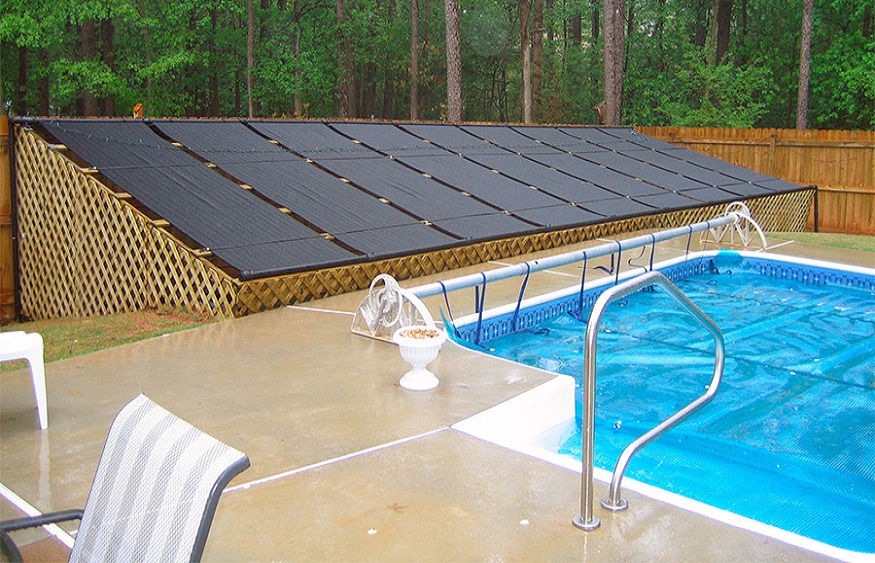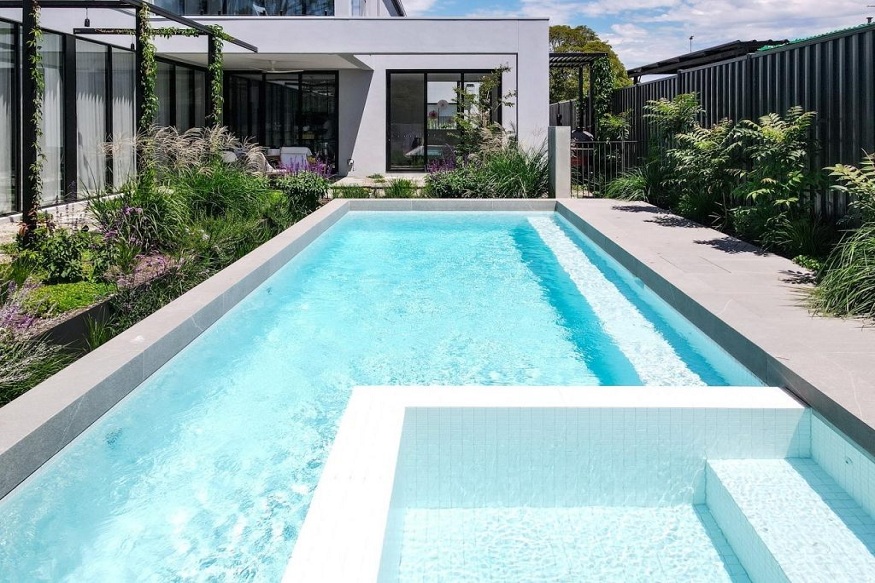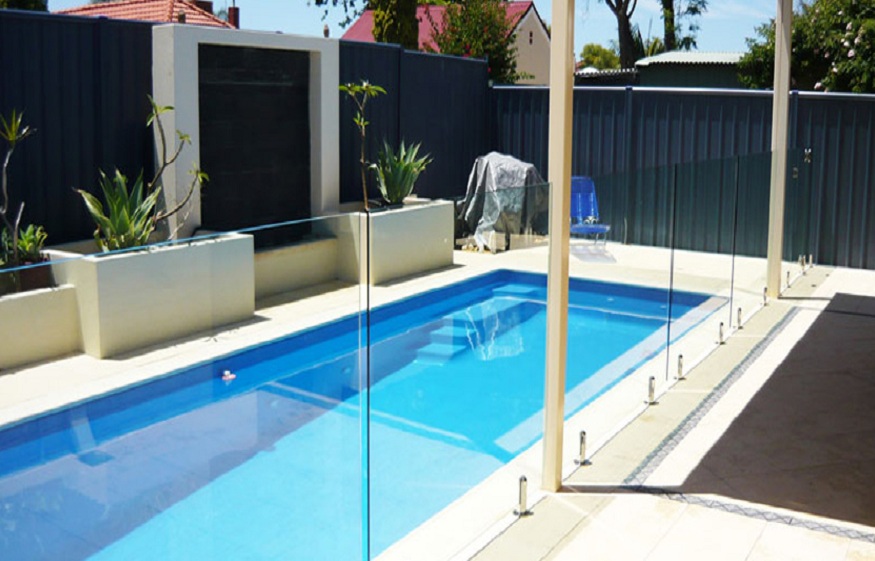Designing A Pool With Solar Heating Solutions
Ever thought about extending your swimming season without skyrocketing energy bills? Solar heating for pools might be the perfect solution for you. This innovative approach harnesses the sun’s power to keep your pool water warm, ensuring you get the most out of your backyard oasis year-round.
In this blog, we’ll take a deep dive into the world of solar pool heating. We’ll explore its advantages, design considerations, installation and maintenance tips, cost analysis, environmental impact, and future trends. By the end, you’ll understand why solar heating is a smart and sustainable choice for pool owners.
The Advantages of Solar Pool Heating
Cost Savings
First and foremost, solar pool heating can save you a significant amount of money. Traditional pool heaters rely on electricity or gas, leading to high utility bills. In contrast, solar systems use the sun’s free energy, reducing or even eliminating your heating costs.
Eco-Friendly Choice
Solar pool heating is a green choice. By using renewable energy, you’re reducing your carbon footprint and contributing to a healthier planet. Unlike gas heaters, solar systems produce no emissions, making them an environmentally responsible option.
Low Maintenance and Longevity
Once installed, solar heating systems require minimal maintenance. They are designed to withstand the elements and often come with long warranties. This durability ensures you enjoy warm pool water for many years without constant upkeep.
Design Considerations for Solar Pool Heating Systems
Location and Sunlight
When designing your solar heating system, location is critical. You’ll need a sunny spot, typically a south-facing roof or ground area, to install the solar collectors. Ensure that this area is free from obstructions such as trees or buildings, which could cast shadows and reduce the efficiency of your system. The more sunlight your collectors receive, the more efficient your system will be, ultimately leading to greater energy savings and a warmer pool.
Pool Size and Heating Needs
The size of your pool and your desired water temperature will significantly influence the design of your system. Larger pools or those in cooler climates may require more collectors to achieve the desired heating effect. It’s essential to calculate your heating needs accurately to ensure your system is effective. Consider factors such as the pool’s surface area, the average ambient temperature, and how often you use your sydney plunge pools. Consulting with a professional can help you determine the optimal number of collectors and system configuration for your specific needs.
Integration with Existing Systems
If you already have a pool heating system, integrating solar can be seamless and beneficial. Solar heating systems can work alongside traditional heaters, providing supplemental heating and increasing overall efficiency. This hybrid approach ensures your pool stays warm even during overcast days or periods of high demand. By combining solar with your existing system, you can reduce reliance on non-renewable energy sources, lower your utility bills, and extend your swimming season. Additionally, many solar heating systems come with smart controls that can optimise energy use and make managing your pool’s temperature more convenient.
Installation Process and Maintenance Tips
Professional Installation
While some handy homeowners may attempt to install a solar heating system themselves, professional installation is recommended. Experts can ensure the system is correctly installed and optimally positioned for maximum efficiency.
Routine Maintenance
Maintaining a solar pool heating system is relatively simple. Regularly check the collectors for debris and ensure the pump and filter are functioning correctly. Occasional professional inspections can help identify any potential issues before they become major problems.
Winterising Your System
In colder climates, it’s essential to winterise your solar heating system. This process involves draining the collectors and ensuring no water remains in the pipes, preventing potential damage from freezing temperatures.
Cost Analysis Comparing Solar vs Traditional Pool Heating
Initial Investment
The upfront cost of installing a solar pool heating system can be higher than traditional heaters. However, this initial investment is often recouped through significant savings on energy bills over time.
Long-Term Savings
Over the lifespan of the system, solar heating proves to be more cost-effective. With minimal ongoing costs and maintenance, you’ll enjoy warm water without the recurring expense of gas or electricity.
Return on Investment
Many pool owners find that their solar heating system pays for itself within a few years. The combination of energy savings and potential incentives or rebates makes it a financially wise choice.
Environmental Impact of Solar Heating for Pools
Reducing Carbon Footprint
Choosing solar heating significantly reduces your pool’s carbon footprint. Traditional heaters rely on fossil fuels, which emit greenhouse gases. Solar systems, on the other hand, use clean, renewable energy.
Conserving Resources
By using sunlight, you’re conserving natural resources. Unlike gas or electric heaters, solar systems don’t deplete non-renewable resources, making them a sustainable choice for the long term.
Supporting Renewable Energy
Investing in solar technology supports the broader adoption of renewable energy. By choosing solar heating, you’re contributing to the growth of sustainable energy solutions.
Future Trends in Solar Pool Heating Technology
Advances in Solar Collectors
The technology behind solar collectors is continuously evolving. New materials and designs are making them more efficient and durable. Innovations such as microchannel technology and improved heat transfer fluids are enhancing performance.
Smart Integration
The future of solar pool heating includes integration with smart home systems. Imagine controlling your pool’s temperature from your smartphone or receiving alerts when maintenance is needed. These advancements make solar heating even more convenient and user-friendly.
Hybrid Systems
Hybrid systems that combine solar with other renewable energy sources, like wind or geothermal, are gaining popularity. These systems offer even greater efficiency and reliability, ensuring your pool stays warm regardless of weather conditions.
Conclusion The Benefits and Feasibility of Solar
Switching to solar pool heating is a smart move for any pool owner. Not only does it offer substantial cost savings by reducing energy bills, but it is also environmentally friendly, reducing your carbon footprint. Solar pool heating systems harness the sun’s energy, a renewable resource, making it a sustainable choice. Additionally, these systems require minimal maintenance, saving you both time and effort in the long run. With continuous advancements in technology, solar heating is becoming more efficient and accessible than ever. Modern systems are designed to maximise energy absorption, even on cloudy days, ensuring your pool remains comfortably warm. Investing in solar pool heating not only benefits you but also contributes to a greener planet.



